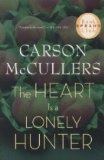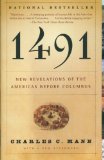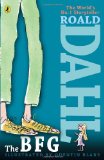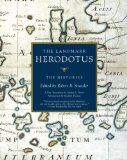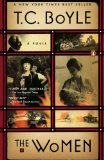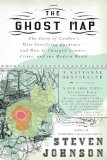Category: Book Reviews
Book Review: “The Heart is a Lonely Hunter” by Carson McCullers
January 4, 2010 { Book Reviews }Yearning, melancholy, loving and sad: the more McCullers I read, the more I realize her genius for her gentle understanding of the lonely, the freakish and the isolated.
McCullers understands the panicky void that gapes around those who are alone, who cannot express the complications of their minds. Each character here, floating alone through life in a miserable southern mill town, each one shares two things in common.
Book Review: “1491″ by Charles Mann
January 4, 2010 { Book Reviews }Just how many people were in the New World on the cusp of the Columbus encounter? And how advanced were the preeminent civilizations at the time? Mann takes a big, bold perspective on the Way Things Might Have Been in this interesting sociological tapestry. Comfortable, conversational writing from someone comfortable with both nonfiction and narrative.
Book Review: “BFG” by Roald Dahl
January 4, 2010 { Book Reviews }‘Do you like vegetables?’ Sophie asked, hoping to steer the conversation towards a slightly less dangerous kind of food.
‘You is trying to change the subject,’ the Giant said sternly. ‘We is having an interesting babblement about the taste of the human bean. The human bean is not a vegetable.’
‘Oh, but the bean is a vegetable,’ Sophie said.
‘Not the human bean,’ the Giant said. ‘The human bean has two legs and a vegetable has no legs at all.’
Book Review: “Histories” by Herodotus (Landmark)
January 3, 2010 { Book Reviews }I consider Herodotus a duty; to be broadly educated, he seems an essential read. I chose this edition because of its massive scale of coverage: It took me about eight months to read the entire text.
Herodotus, author of the first major surviving written accounts that look something like historical narrative. Oft credited as the Father of History, he is also derided as the Father of Lying.
Book Review: “Buffalo Gals and other Animal Presences” by Ursula K. Le Guin
December 30, 2009 { Book Reviews }When I was 10 or 12 years old, my mother read the short story ‘Buffalo Gals’ out loud to my sister and me. It seeped into my subconscious. I remembered little of the plot as my life stretched on, but recalled nuance, shapeshifting, dreamlike visions and a near worship of the Oregon high desert landscape I would, as a teenager, come to see as my spiritual mirror.
Book Review: “The Women” by T.C. Boyle
December 30, 2009 { Book Reviews }I have a bit of a star-struck love for TC Boyle, but this novel made my head buzz with the pestering question: ‘Why?’
The tale, told in reverse-chronological order, unwinds the dramatic coil of Wright’s libido, which apparently ran rampant and unchecked through the first half of the 20th century.
Book Review: “Arthur and George” by Julian Barnes
December 30, 2009 { Book Reviews }A mystery based on real events set during the senescence of Victorian ideals, starring the real human Sir Arthur Conan Doyle, “Arthur & George” combines literary suspense with the themes of slowly declining empire. It explores what it means to be English at a time when what it means to be English is changing faster than it has ever done so before; it glances at the accelerating evolution of change in the time of full-steam-ahead Edwardian idealism.
Book Review: “The Ghost Map” by Steven Johnson
December 24, 2009 { Book Reviews }Taut and engrossing, Steven Johnson’s ‘The Ghost Map’ is a rollicking multidisciplinary romp through Victorian London’s scientific, cultural and medical evolution. Johnson’s focal point is a devastating–indeed, decimating–1854 cholera outbreak in Soho, which becomes a crucible of the nascent field of epidemiology and highlights the stark changes in science throughout the mid-19th century.
Book Review: “Half Moon: Henry Hudson and the Voyage that Redrew the Map of the New World” by Douglas Hunter
December 21, 2009 { Book Reviews }All the ingredients of a wickedly delicious, ground-breaking history. The premise is delicious: The story of how Henry Hudson’s New York Harbor-discovering adventure was really a maniacal farce involving the essential hijacking of an East India Company ship and its incompatible (half English, half Dutch, fully unable to communicate with each other) crew.
Book Review: “Dream of Scipio” by Iain Pears
December 21, 2009 { Book Reviews }Iain Pears’ novel about the ebb of civilizations, virtue and evil spans almost two millennia but very little geographical space: it tells three stories set at the brink of societal chaos in the south of France. Beautifully structured, academically sound, ‘The Dream of Scipio’ is worth a read. But it might not change your life.
From the Archive
From the archive, a few random posts that you might not have seen before.
- Jan 23, 2007 { Life }
A Calming Influence for Us Portlanders Who Think Housing Prices are Out of Control - Jan 17, 2007 { Life, PDX }
Smug, Self-Congratulatory Bit; Then a Minor Rant - Jan 5, 2010 { Book Reviews }
Book Review: “The Lacuna” by Barbara Kingsolver - May 6, 2008 { Life }
Spring at the House

